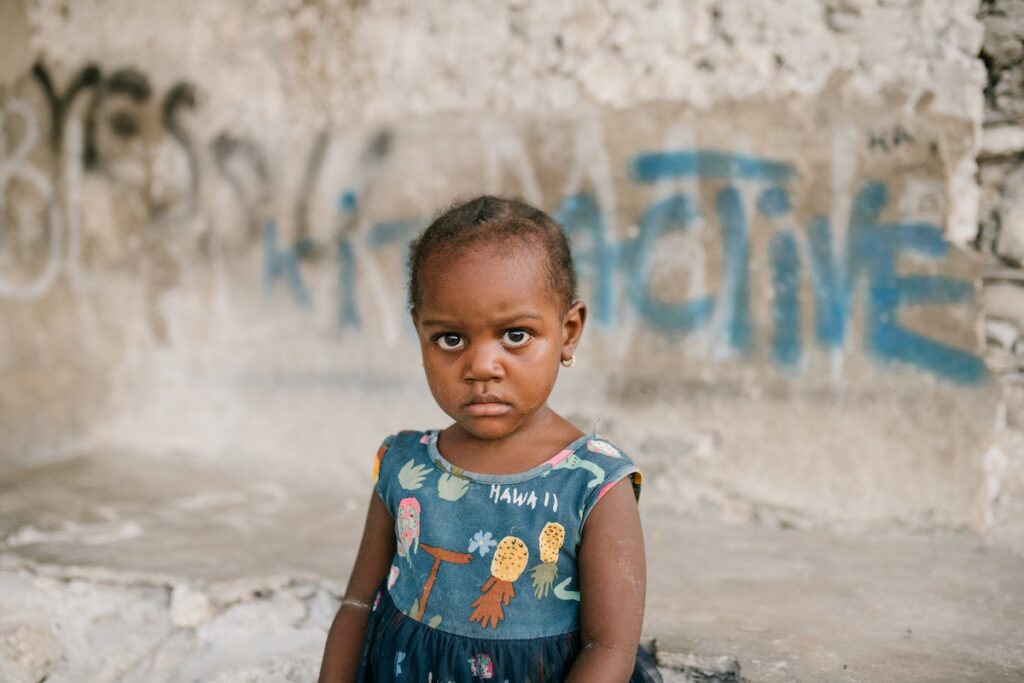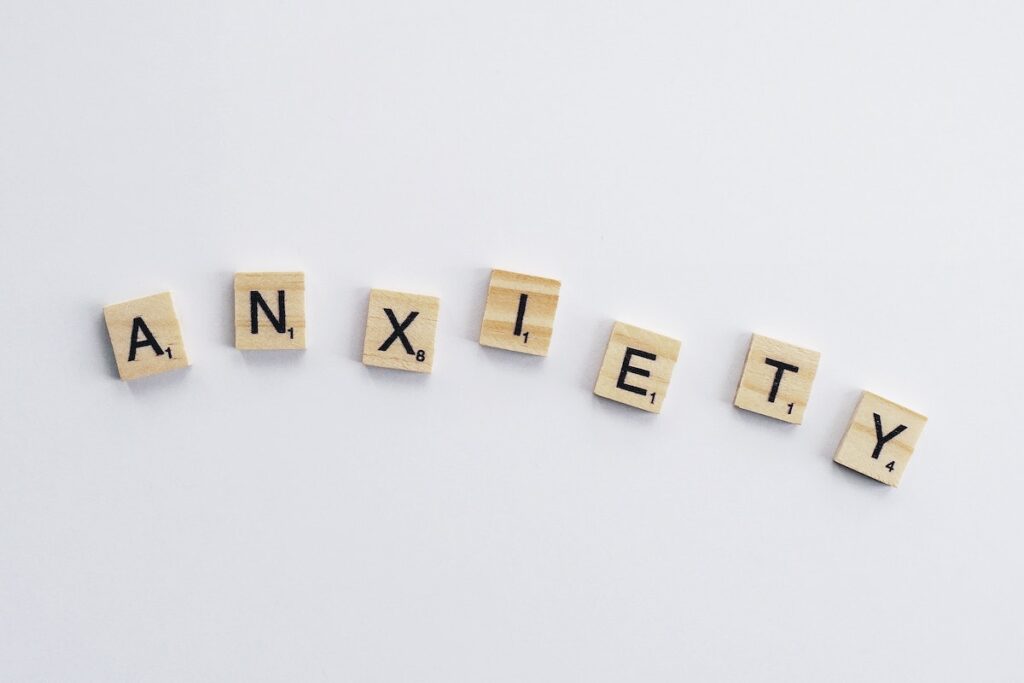Childhood anxiety is a prevalent mental health concern affecting many children worldwide. These disorders can manifest as excessive worry, fear, and unease, often leading to distressing symptoms and impairment in various aspects of a child’s life.
However, when parents actively address childhood anxiety, they contribute to their children’s overall resilience and long-term mental health. Effective anxiety management can enhance a child’s self-esteem, self-confidence, and emotional stability. Read on to find out more.
Understanding Childhood Anxiety
Anxiety disorders are conditions where children or individuals experience excessive worry, fear, and unease. These conditions can appear in various manners and are frequently categorized into distinct forms.
Common Types Of Childhood Anxiety Disorders
One common type is generalized anxiety disorder (GAD), which involves persistent and excessive worrying about everyday things like school performance, health, and family matters.
Another type is separation anxiety disorder (SAD), where children experience intense fear or distress when separated from their parents or caregivers.
Social anxiety disorder (SAD) is characterized by extreme fear of social situations and interactions. This scenario could occur in school or with friends.
Specific phobias involve intense fear of specific objects or situations, such as animals or heights.
Causes and risk factors contributing to childhood anxiety
Childhood anxiety can arise from a combination of factors, including both biological and environmental influences. Inherited traits and genetics play a role, as children with a family history of anxiety disorders are more susceptible to developing anxiety themselves.
Environmental factors also contribute to childhood anxiety. High-stress environments, traumatic experiences, and significant life changes like moving or parental separation can worsen anxiety symptoms.
Recognizing Childhood Anxiety
Identifying common triggers and situations that may provoke anxiety is very important. Children with anxiety may exhibit physical symptoms like;
- restlessness,
- stomachaches,
- headaches
- difficulty sleeping, and
- If they had stopped bedwetting, they might start doing it again.
- Emotional symptoms include excessive worry, fear of separation, irritability, and low self-esteem.
- Socially, children with anxiety may avoid social interactions, have difficulty making friends, or fear judgment or embarrassment.
Effects of Childhood Anxiety
Recognizing the impact of anxiety on academic performance can help parents provide the necessary support and advocate for their children’s educational needs.
Childhood anxiety can significantly impact children’s academic performance and social interactions. But how?
- When children are dealing with anxiety, it can impair their concentration, attention, and ability to learn effectively in school.
- Anxiety can hinder their academic progress and lead to frustration and low self-esteem.
- Children with anxiety may struggle with making friends, engaging in group activities, or participating in social events. They may experience heightened self-consciousness, fear of judgment, or worry about saying or doing something wrong.
If anxiety is left unaddressed, it has potential long-term consequences on various aspects of life, including relationships, education, and career opportunities. For instance, it can persist into adolescence and adulthood, leading to a range of difficulties such as;
- Development of other mental health conditions, such as depression, substance abuse, or even suicidal ideation. The CDC suggests that those who experience anxiety disorders have an increased likelihood of encountering depression, attention-deficit/hyperactivity disorder (ADHD), or other anxiety disorders in their future years.
- Hindered development of healthy coping mechanisms, limited self-confidence, and restricted personal growth
For this reason, it’s essential to address childhood anxiety; this way, parents can help their children thrive and overcome obstacles in their journey toward a fulfilling and successful life.

Strategies for Managing Childhood Anxiety
a) Create a supportive and nurturing environment at home
As parents, one of the most effective strategies for managing childhood anxiety is to create a supportive and nurturing environment at home. This entails providing love, understanding, and acceptance to your child.
b) Encourage open communication and active listening with children
Engage in conversations with your child, encouraging them to share their thoughts and concerns. Practice active listening by giving your undivided attention, maintaining eye contact, and showing empathy.
Through open communication and active listening, you can gain valuable insights into your child’s emotions, enabling you to provide appropriate support and guidance.
c) Teach children coping mechanisms and relaxation techniques
Teach your child techniques like deep breathing exercises, visualization, or mindfulness.
If they enjoy, such as drawing, writing, or physical exercise.
In addition, please help your child build resilience by teaching them problem-solving skills and positive self-talk. Empowering your child with these tools enables them to navigate their anxiety and develop a sense of control over their emotions.
d) Seek professional help and therapy options for childhood anxiety
In some cases, professional help and therapy options may be necessary to manage childhood anxiety effectively. If your child’s anxiety significantly impairs their daily functioning or causes severe distress, consider seeking assistance from mental health professionals.
Therapeutic interventions, such as cognitive-behavioral therapy (CBT), play therapy, or family therapy, can be beneficial in helping children understand and manage their anxiety.
Practical Parenting Tips for Managing Childhood Anxiety
a) Establish consistent routines and schedules
Consistency gives children a sense of stability and predictability, which can help reduce anxiety. Create daily routines such as waking up, mealtimes, homework, and bedtimes.
Stick to these routines as much as possible to provide a structured environment for your child. Consistency also extends to setting clear expectations and boundaries.
Establishing consistent routines creates a sense of order and security, which can help alleviate anxiety in your child.
b) Promote healthy lifestyle habits, including sleep and nutrition
Promoting healthy lifestyle habits is crucial for managing childhood anxiety. Ensure your child gets adequate sleep, as lack of sleep can worsen anxiety symptoms. Establish a regular night routine and create a calm environment conducive to quality sleep.
Provide your child with a balanced and nutritious diet, as certain foods can affect mood and anxiety. Encourage your child to consume fruits, vegetables, whole grains, and lean proteins. Avoid sugary snacks and drinks because they can contribute to mood swings and anxiety.
c) Encourage physical activity and outdoor play
Outdoor and physical activity are essential for managing childhood anxiety because regular exercise releases endorphins, natural mood enhancers.
The physical activities could include:
- sports,
- dancing, or
- playing outdoors.
Foster a love for nature by taking family walks, visiting parks, or gardening. This will promote your child’s physical health and provide them with outlets to release energy and manage anxiety.
d) Limit exposure to stress-inducing media and technology
In today’s digital age, limiting your child’s exposure to stress-inducing media and technology is crucial. Constant exposure to news, violent or scary content, or excessive screen time can contribute to anxiety in children.
Monitor and control your child’s content, ensuring it is age-appropriate and non-threatening. Set limits on screen time and encourage alternative activities such as reading, playing board games, or engaging in creative pursuits.
e) Model healthy coping mechanisms and self-care practices
As parents, it is essential to model healthy coping mechanisms and self-care practices for your child. Demonstrate positive ways of dealing with stress, such as practicing relaxation techniques, engaging in hobbies, or seeking social support.
Keep in mind to look after your overall welfare and make self-care a top priority. This sends a powerful message to your child about the importance of managing stress and taking care of oneself.
Supporting Siblings and Family Members
Siblings may feel overwhelmed, neglected, or even anxious due to the family’s stress. Engage in open conversations with siblings, acknowledging their feelings and concerns. Offer reassurance and explain that their anxious sibling’s behavior is not their fault.
Share age-appropriate books, articles, or videos that explain anxiety in a way they can comprehend. Encourage open dialogue, where siblings can ask questions and express their feelings.
Family therapy and open communication are essential for strengthening bonds and supporting family members affected by childhood anxiety. Consider seeking the assistance of a qualified therapist who specializes in working with families.
It promotes understanding, empathy, and effective communication. Encourage open and honest communication among family members, allowing everyone to share their experiences and emotions.
FAQS
What is the difference between everyday childhood worries and excessive anxiety?
While it is normal for children to experience occasional worries and fears, excessive anxiety is characterized by its intensity, duration, and interference with a child’s daily life.
If a child’s worries persist for an extended period, become overwhelming, or significantly affect their functioning and well-being, it may indicate anxiety.
Conclusion
In conclusion, recognizing and managing childhood anxiety is paramount for parents. We have explored the impact of childhood anxiety on children’s well-being, the need to recognize its signs and symptoms, and the potential long-term consequences if left untreated.
As parents, it is crucial to take proactive steps in supporting your child’s mental well-being. In addition, seeking professional help and therapy options when needed is crucial in ensuring your child receives the appropriate support and interventions.
Your proactive efforts and commitment to your child’s mental health can significantly impact their well-being and future success. Let us join hands, break the stigma surrounding mental health, and prioritize the mental well-being of our children.











